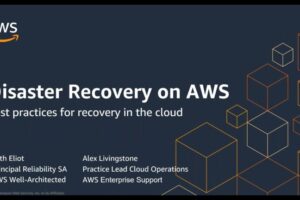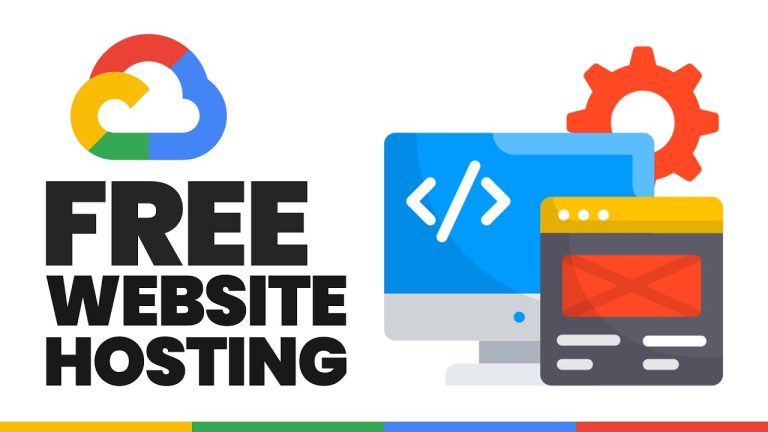Cloud hosting has become increasingly popular in recent years, especially for Artificial Intelligence (AI) applications. This article explores the numerous benefits of using cloud hosting for AI, highlighting its ability to provide scalability, flexibility, and cost-effectiveness. With cloud hosting, businesses and organizations can easily accommodate the growing demands of AI technologies, ensuring that their AI applications perform optimally and seamlessly. Additionally, cloud hosting allows for easy integration and collaboration, enabling AI experts and developers to work together efficiently. Overall, cloud hosting proves to be a reliable and efficient choice for hosting AI applications, offering a range of advantages that are essential for successful AI deployment.
Benefits of Cloud Hosting
Cloud hosting offers several benefits for AI applications, making it the perfect choice for organizations looking to leverage the power of artificial intelligence.
Scalability
One of the key advantages of cloud hosting is its scalability. With AI workloads that require significant computational resources, cloud hosting allows for seamless scaling up or down based on the demand. This means that organizations can easily adjust their resources to accommodate peak loads or accommodate growth without investing in additional hardware. The ability to scale resources on-demand ensures optimal performance and cost-efficiency for AI applications.
Cost-effectiveness
Cloud hosting is also cost-effective for AI applications. Traditionally, organizations would need to invest in expensive infrastructure and hardware to support AI workloads. With cloud hosting, these upfront costs are eliminated. Instead, organizations pay for the resources they use on a pay-as-you-go basis. This model allows for better cost control and ensures that organizations only pay for the resources they need, reducing unnecessary expenses.
Flexibility
Cloud hosting offers the flexibility needed for AI applications. As AI workloads evolve and new technologies are introduced, organizations need to adapt quickly. Cloud hosting provides the agility to experiment with different AI frameworks, tools, and technologies without the constraints of physical infrastructure. New AI models and algorithms can be easily deployed and tested, allowing organizations to stay at the forefront of AI innovation.
High Performance
AI applications demand high-performance computing capabilities to process and analyze large amounts of data efficiently. Cloud hosting provides access to powerful computing resources with high-speed processing capabilities. This enables organizations to execute complex AI algorithms and models quickly, improving overall performance and reducing time to insights.
Reliability
Reliability is crucial for AI applications, especially when handling mission-critical tasks. Cloud hosting offers high levels of reliability through redundant hardware and infrastructure. Data and applications are replicated across multiple servers and data centers, ensuring that even in the event of hardware failures or natural disasters, AI workloads continue to run smoothly. Additionally, cloud providers offer robust backup and disaster recovery mechanisms to protect against data loss and minimize downtime.
AI Workloads and Cloud Hosting
Cloud hosting is well-suited for a variety of AI workloads, including data storage and processing, computational power, model training and deployment, and real-time analytics.
Data Storage and Processing
AI applications rely on massive amounts of data for training models and generating insights. Cloud hosting provides the storage capacity needed to store and process vast volumes of data. Organizations can leverage cloud-based storage services to store and manage their datasets securely. With scalable resources, cloud hosting ensures that data processing can be performed efficiently, even as the data size grows.
Computational Power
AI applications often require significant computational power for tasks such as complex calculations, simulations, and predictive analytics. Cloud hosting offers access to powerful computing resources, including GPUs and TPUs (Tensor Processing Units), to accelerate AI workloads. This enables organizations to perform computationally intensive tasks efficiently and reduce the time required for AI model training and inference.
Model Training and Deployment
Model training is a crucial aspect of AI development. Cloud hosting provides the infrastructure and tools necessary to train AI models at scale. With the ability to dynamically scale resources, organizations can significantly reduce the time required for training complex models. Once trained, AI models can be easily deployed on cloud platforms, making them accessible to applications and services across the organization.
Real-time Analytics
Real-time analytics is essential for AI applications that require immediate insights and decision-making. Cloud hosting allows organizations to process and analyze streaming data in real-time. This is particularly valuable for applications that depend on continuous data streams, such as online recommendation systems or fraud detection. By leveraging cloud-based real-time analytics services, organizations can gain timely insights and respond swiftly to changing conditions.
Cloud Providers for AI Applications
Several cloud providers offer comprehensive services and platforms tailored to the unique requirements of AI applications. The following are some popular cloud providers for AI:
Amazon Web Services (AWS)
AWS offers a wide range of AI services and tools, including Amazon SageMaker, which provides a fully managed environment for building, training, and deploying machine learning models. Additionally, AWS provides AI-powered services such as Amazon Rekognition for image and video analysis, and Amazon Comprehend for natural language processing.
Microsoft Azure
Microsoft Azure offers various AI services, including Azure Machine Learning, a cloud-based platform for building, training, and deploying machine learning models. Azure also provides cognitive services, such as Azure Speech to Text for speech recognition and Azure Computer Vision for image analysis.
Google Cloud Platform (GCP)
GCP offers a comprehensive suite of AI tools and services. Google Cloud AI provides pre-trained models and machine learning APIs for tasks like language translation, sentiment analysis, and image recognition. GCP also offers AutoML, which allows organizations to build their own custom machine learning models with minimal coding.
IBM Cloud
IBM Cloud offers AI services through its Watson platform. Watson provides a wide range of AI capabilities, including natural language processing, computer vision, and predictive analytics. IBM Cloud also offers AutoAI, which automates the process of building and deploying machine learning models.
Infrastructure as a Service (IaaS)
IaaS is a cloud computing model that provides organizations with virtualized computing resources. For AI applications, IaaS offers the following key capabilities:
Virtual Machines
IaaS providers offer virtual machines (VMs) that enable organizations to create and run AI workloads in a flexible and scalable manner. VMs can be customized with specific configurations and resource allocations to meet the requirements of AI applications.
Networking
IaaS platforms provide networking capabilities that allow organizations to connect their AI workloads to other systems and services securely. This enables seamless data transfer and integration between different components of an AI application.
Storage
IaaS providers offer scalable storage solutions that allow organizations to store and access large volumes of data required for AI workloads. These storage solutions can be easily expanded as the data size grows, ensuring efficient data management and accessibility.
Load Balancing
Load balancing is essential for distributing AI workloads across multiple servers or virtual machines to optimize performance and resource utilization. IaaS platforms provide load balancing mechanisms that ensure even distribution of workloads, minimizing response time and preventing overload on individual resources.
Platform as a Service (PaaS)
PaaS is a cloud computing model that provides a platform for developing, deploying, and managing applications. PaaS offers several capabilities that are beneficial for AI applications:
Managed AI Services
PaaS providers offer managed AI services that simplify the development and deployment of AI applications. These services include pre-built AI models, APIs, and tools that can be integrated into applications with minimal effort. PaaS providers take care of the underlying infrastructure and provide a development environment for AI applications.
Database Management Systems
PaaS platforms provide database management systems that enable organizations to store and manage large datasets efficiently. These databases can be tightly integrated with AI applications, ensuring seamless data access and processing.
Development Tools
PaaS platforms offer a range of development tools and frameworks for building AI applications. These tools provide libraries, frameworks, and SDKs (Software Development Kits) that simplify the development process and enable organizations to leverage AI capabilities without extensive coding knowledge.
Software as a Service (SaaS)
SaaS is a cloud computing model where applications are hosted and provided as a service over the internet. SaaS offers several AI-related applications and tools that organizations can utilize:
AI-powered Applications
SaaS providers offer AI-powered applications that leverage machine learning and other AI techniques, such as speech recognition, natural language processing, and recommendation systems. These applications provide out-of-the-box functionalities that organizations can use without the need for extensive AI expertise.
Data Analytics Tools
Data analytics is a critical component of AI applications. SaaS platforms provide data analytics tools and platforms that offer advanced analytics capabilities, such as data visualization, predictive analytics, and anomaly detection. These tools enable organizations to gain insights from their data and make informed decisions.
Collaboration Platforms
Collaboration is essential for AI development teams. SaaS platforms offer collaboration tools that facilitate teamwork, communication, and knowledge sharing. These tools enable teams to collaborate on AI projects seamlessly, share code, and collaborate on model development and deployment.
Security Considerations
Security is a significant concern when it comes to AI applications. Organizations must consider the following security considerations when using cloud hosting for AI:
Data Protection
Data protection is crucial for AI applications that handle sensitive information. Cloud providers offer various security measures, such as encryption at rest and in transit, to safeguard data against unauthorized access or theft. Organizations should ensure that proper security measures are in place to protect their AI datasets and models.
Access Control
Access control mechanisms help organizations manage user access to AI resources and data. Cloud platforms offer robust access control mechanisms, such as role-based access control, to ensure that only authorized individuals or systems have access to AI workloads and data. Organizations should implement proper access control policies to protect their AI assets.
Threat Detection and Prevention
Cloud providers offer advanced threat detection and prevention mechanisms to identify and mitigate potential security threats. These mechanisms include intrusion detection systems, continuous monitoring, and security incident response systems. Organizations should leverage these security features to detect and prevent security breaches that could impact the confidentiality, integrity, or availability of their AI applications.
Integration with Other Technologies
Integration with other technologies enhances the capabilities of AI applications. Cloud hosting allows for seamless integration with various technologies:
Internet of Things (IoT)
AI applications can leverage IoT data to gain real-time insights and enable intelligent automation. Cloud hosting provides the infrastructure and platforms to ingest, process, and analyze large volumes of IoT data. This integration enables organizations to unlock the full potential of AI by combining it with real-time sensor data from IoT devices.
Big Data
Big data analytics is a fundamental component of AI applications. Cloud hosting allows organizations to integrate AI with big data platforms, such as Apache Hadoop or Apache Spark, to process and analyze large datasets efficiently. This integration enables organizations to derive valuable insights from their big data and apply AI techniques for advanced analytics and prediction.
Edge Computing
Edge computing brings the power of AI closer to the data source by processing and analyzing data at the edge of the network, reducing latency and enabling real-time decision-making. Cloud hosting facilitates the integration of AI with edge computing devices, allowing organizations to deploy AI models directly on edge devices and leverage their computing power for faster and more efficient AI inference.
Challenges and Limitations
While cloud hosting offers numerous benefits for AI applications, there are some challenges and limitations to consider:
Latency
Latency can be a significant challenge for AI applications hosted in the cloud. AI workloads that require real-time responses may be impacted by network latency, as data needs to be transmitted to the cloud for processing and then back to the application. Organizations must carefully evaluate the latency requirements of their AI applications and consider edge computing solutions for low-latency requirements.
Bandwidth
AI applications generate and consume large amounts of data. Ensuring sufficient bandwidth for transferring data to and from the cloud can be a challenge, particularly for organizations with limited network infrastructure. Insufficient bandwidth can result in delays and poor performance of AI applications. Organizations should consider investing in robust network infrastructure or leveraging edge computing to address bandwidth limitations.
Data Privacy
AI applications often deal with sensitive data, such as personal or proprietary information. Organizations must carefully consider data privacy and compliance requirements when using cloud hosting for AI. Data encryption, access control mechanisms, and proper data handling practices should be implemented to protect sensitive data and ensure compliance with applicable regulations.
Vendor Lock-in
Adopting cloud hosting for AI applications may result in vendor lock-in, where organizations become heavily dependent on a specific cloud provider’s services and technologies. Switching cloud providers or migrating applications to an on-premises environment can be complex and costly. Organizations should carefully evaluate their long-term plans and consider strategies to mitigate the risks associated with vendor lock-in.
Future Trends
The future of cloud hosting for AI applications holds several exciting trends:
Edge AI
Edge AI is expected to gain prominence, as organizations seek to reduce latency and improve real-time decision-making. Edge AI involves deploying AI models directly on edge devices, enabling local data processing and analysis. Cloud hosting will play a crucial role in facilitating the development and deployment of AI models to the edge, allowing organizations to leverage the power of the cloud while benefiting from reduced latency and increased autonomy.
Federated Learning
Federated learning is a distributed approach to AI model training, where models are trained locally on edge devices and aggregated centrally. This approach ensures data privacy and reduces the need to transfer sensitive data to the cloud. Cloud hosting will enable organizations to orchestrate federated learning processes, providing the infrastructure and management capabilities required for training AI models in a distributed manner.
Hybrid Cloud
Hybrid cloud environments, which combine private and public clouds, will continue to gain popularity. Organizations can leverage private clouds for data privacy and security while using public cloud resources for scalable computing and AI services. Cloud hosting will enable seamless integration and management of hybrid cloud environments, allowing organizations to leverage the best of both private and public cloud capabilities for their AI applications.
Quantum Computing
Quantum computing has the potential to revolutionize AI by solving complex problems at an unprecedented scale and speed. Cloud hosting will play a crucial role in democratizing access to quantum computing resources, allowing organizations to experiment, develop, and deploy AI models that leverage quantum computing capabilities. As quantum computing matures, cloud providers will offer quantum computing services, enabling organizations to harness the power of this emerging technology for AI applications.
In conclusion, cloud hosting provides numerous benefits for AI applications, including scalability, cost-effectiveness, flexibility, high performance, and reliability. It offers a wide range of services and platforms tailored to the unique requirements of AI, such as data storage and processing, computational power, model training and deployment, and real-time analytics. Cloud hosting also addresses security considerations and enables integration with other technologies such as IoT, big data, and edge computing.
While it comes with challenges and limitations, the future of cloud hosting for AI applications looks promising, with trends such as edge AI, federated learning, hybrid cloud, and quantum computing shaping the landscape. Organizations that leverage cloud hosting for AI can unlock the full potential of artificial intelligence and stay at the forefront of innovation in the digital age.








